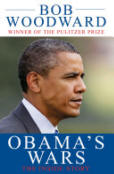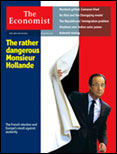Top Current Affairs Magazines
|
|
|||
|
|
Subscribe to Reader's Digest in Pakistan (Int'l Edition) Rs 5500
|
||
Pakistan's premier website that covers current affairs and news.
Shadow of a Revolution: Indonesia & the Generals
Property Sale Purchase in Lahore, Rawalpindi & Islamabad
Some recommended books to understand Afghan society
The Wandering Falcon by Jamil Ahmed
The Savage Frontiers by D S Richards
The forces that made nationalism a crisis in the West will go global
The victory of Emmanuel Macron over Marine Le Pen in France’s presidential elections signaled that “the season of growth of populism has ended,” but that may not be the case, writes Time magazine (Subscribe now).

Not so fast. Europeans will soon remember that elections are never the end of anything–they’re a beginning. And whether the issue is unelected Eurocrats’ forcing voters to abide by rules they don’t like or fears that borders are insecure, there are good reasons to doubt that the anti-E.U. fever has broken. France’s Macron now faces powerful opposition on both the far right and the far left. Hungary and Poland are becoming increasingly illiberal. Brexit negotiations are getting ugly. And resentment toward the E.U. is still rising throughout Europe.
Related Stories
Afghanistan: Democracy, Elections and after (October 5, 2014)
The emergence of a truly global middle class is one of history’s great success stories: more than a billion people have been lifted out of poverty, literacy rates have surged, and access to education and health care is now widespread. But this vast rising tide did not lift all boats, and those left behind are not happy. The headlines have all been about reaction in the West, where globalized trade has hit manufacturing and technological changes have transformed the workplace. Jobs are being eliminated, and the world’s original middle classes are shrinking. The native-born resent immigrants seeking work, and in Europe, the debt crisis plunged some countries into austerity and others into stagnation just as the surge of Middle Eastern refugees fed fears of crime, terrorism and loss of national identity.
Pakistan and the Afghan Taliban prepare to talk (December 15, 2012)
Courtesy The Economist
October 4, 2014
Share your views at feedback@newsflash.com.pk
Send your contributions at editor@newsflash.com.pk







